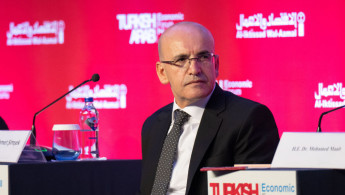Turkish inflation rises following wage increase, adds pressure on central bank
Turkey's annual inflation rate stayed stable in January at nearly 65 percent, but month-on-month consumer price increases jumped sharply following a huge minimum wage hike, official data showed Monday.
The year-on-year inflation rate moved to 64.86 percent - up a notch from 64.77 percent in December, the TUIK statistics agency reported.
The monthly inflation rate in January, however, climbed to 6.7 percent, from 2.9 percent in December, following a 49-percent rise in the minimum wage that went into effect in January.
Turkey's finance minister, Mehmet Simsek, attributed the monthly inflation jump to "temporary effects".
"We predict that, starting from February, monthly inflation will decrease significantly and remain in line with our forecast," Simsek said on social media.
"We will see a significant decline in annual inflation in the second half of the year."
Inflation remains a pressing issue for President Recep Tayyip Erdogan's government ahead of local elections in March.
His ruling AKP party is trying to win back control of major cities, including Istanbul and the capital Ankara, currently held by the main opposition party.
Turkey's central bank, which has raised its key rate from 8.5 percent to 45 percent since June, said last month that the level was sufficient to start easing the cost of living crisis.
The bank's governor Hafize Gaye Erkan resigned on Friday, less than a year into her tenure, after a scandal involving her family.
She was replaced by Fatih Karahan, a former economist at the Federal Reserve Bank of New York and the US online retail giant Amazon, who may be under pressure to again start raising the interest rate, analysts said.
"The arguments in favour of restarting the tightening cycle with another interest rate hike later this month are compelling and would underline the central bank's commitment to tackle inflation - and help to build Governor Karaham's credibility," Capital Economics analyst Liam Peach said.





 Follow the Middle East's top stories in English at The New Arab on Google News
Follow the Middle East's top stories in English at The New Arab on Google News


